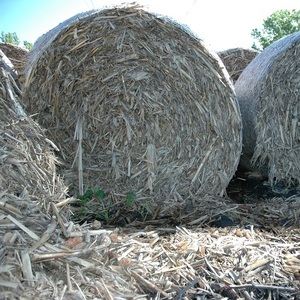Forest Service grants license for biomass conversion technology




December 30, 2019
BY Matt Thompson
The U.S. Forest Service announced in November its intent to grant a license for technology that can efficiently fractionate lignocellulosic biomass to a Canadian company, Whispering Green Energy. And that license has now been granted, according to Gardner McBride, who does development for Whispering Green.
“The particular technology that was developed by the Forest Products Group … as part of the Department of Agriculture, was to create a possibility of quickly removing a great deal of the lignan faster than any other process that had been developed, making it available, for example, for converting it to liquid fuels,” McBride said. “It also could be used for a variety of other purposes.”
Advertisement
McBride said Whispering Green Energy Inc., which is in Ontario, was originally established to install solar systems on farms. “The reason was is that there was an encouragement of the part of the province of Ontario to establish solar panels in locations that would work out well for grid-tying,” he said. He added that solar and wind power generation are now well-established in Canada, so there are declining incentives to undertake more of those projects. “When the rewards declined to a point where it wasn’t worth doing it anymore, the question was what else would be out there for the next project?” he said. “And that next project was dealing with farm biomass.”
The technology, McBride says, allows the company to convert biomass into cellulose. The biomass used will be farm and forest industry residue. “The pre-process would not be as demanding as what a lot of [the conversion technologies] are now,” he said. “The speed with which you would go from that pre-processed, or chopped up, biomass to cellulose that can be used either to continue to refine the cellulose, or which could be directly put into digester tanks, I imagine, for almost everybody is going to be much faster.” He adds that the technology licensed by the Forest Service is just one of several that will be used by Whispering Green. He adds that the trees used will be smaller than six or eight inches.
McBride says the license was recently granted, so Whispering Green hasn’t yet begun experiments. He says the company has a system of tanks installed, as well as a steam boiler. “We're going to wait until spring to begin our experimentations, because we don't want to be experimenting with water that would freeze,” he said. “We anticipate, probably in March or April we’ll start doing some experiments that would generate cellulose fibers.”
Advertisement
The key to the technology’s success, McBride said, will be the recovery how easily the catalysts used in the conversion can be recaptured. “The molecules you end up using are molecules that are fairly expensive to obtain,” he said. So one of the tricks in this, to make it practical and viable, was to look at ways that we can recapture those chemicals,” McBride said.
And Whispering Green has the support of one of Canada’s Centers of Excellence, which is supported by the Canadian government. “We're not a single company striving to figure out everything on its own. We’ll be supported by some highly qualified researchers in government laboratories,” McBride said.
Related Stories
The U.S. Department of Energy Bioenergy Technologies Office (BETO) announced up to $23 million in funding to support research and development (R&D) of domestic chemicals and fuels from biomass and waste resources.
The U.S. DOE has announced its intent to issue funding to support high-impact research and development (R&D) projects in two priority areas: sustainable propane and renewable chemicals and algal system cultivation and preprocessing.
Sens. Sherrod Brown, D-Ohio, and Pete Ricketts, R-Neb., in August introduced the Renewable Chemicals Act, a bill that aims to create a tax credit to support the production of biobased chemicals.
The Chemical Catalysis for Bioenergy Consortium, a consortium of the U.S. DOE’s Bioenergy Technologies Office, has launched an effort that aims to gather community input on the development of new biomass processing facilities.
USDA on March 8 celebrated the second annual National Biobased Products Day, a celebration to raise public awareness of biobased products, their benefits and their contributions to the U.S. economy and rural communities.
Upcoming Events










